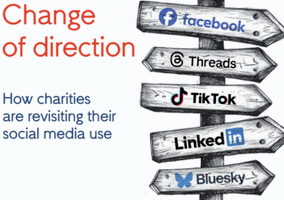As you are no doubt aware, there are two public consultations open at the moment which are important to all those working in charity finance.
One of these is looking at the financial thresholds set out in charity law and whether these should change to reflect the impact of inflation. The second is on the exposure draft of the new SORP.
It is important that charities, either individually or collectively, engage with the consultation process. This is the time when they can have their say on issues that will have a long-term impact on a variety of financial processes and outcomes. Once the consultations close, the chance to change these things will have passed and won’t come around again for some time.
The proposed changes to the SORP are wide-reaching and cover a range of areas.
Of course, the positive side of these rules being set is that it brings stability. Charities know what is expected and required of them in these areas and can plan accordingly.
This stability has not been present in the wider economy of late. If I had to pick a “word of the month” for the past month, then “tariff” would be a strong contender.
President Trump’s introduction of tariffs on what he called “liberation day” sent shockwaves through the global economy. He eventually postponed them for 90 days but the spectre of uncertainty still hangs over international trading. Which countries will manage to negotiate a deal? What will the actual impact be for consumers worldwide?
In its recent World Economic Outlook, the International Monetary Fund said: “The swift escalation of trade tensions and extremely high levels of policy uncertainty are expected to have a significant impact on global economic activity.”
One potential impact is that consumer prices increase as the cost of the tariffs is passed on. Given the recent high levels of inflation and the cost-of-living crisis, this would lead to further increased demand and costs for many charities.
This pressure is already being seen in the sector with news of redundancies and cost-cutting packages a feature of the past few months. Additional pressure could well escalate such headlines.
Unfortunately, charities can only sit tight and see what happens on this, but for the things that they can influence, they should stand up and have their say.
Tristan Blythe is editor of Charity Finance
Related articles













